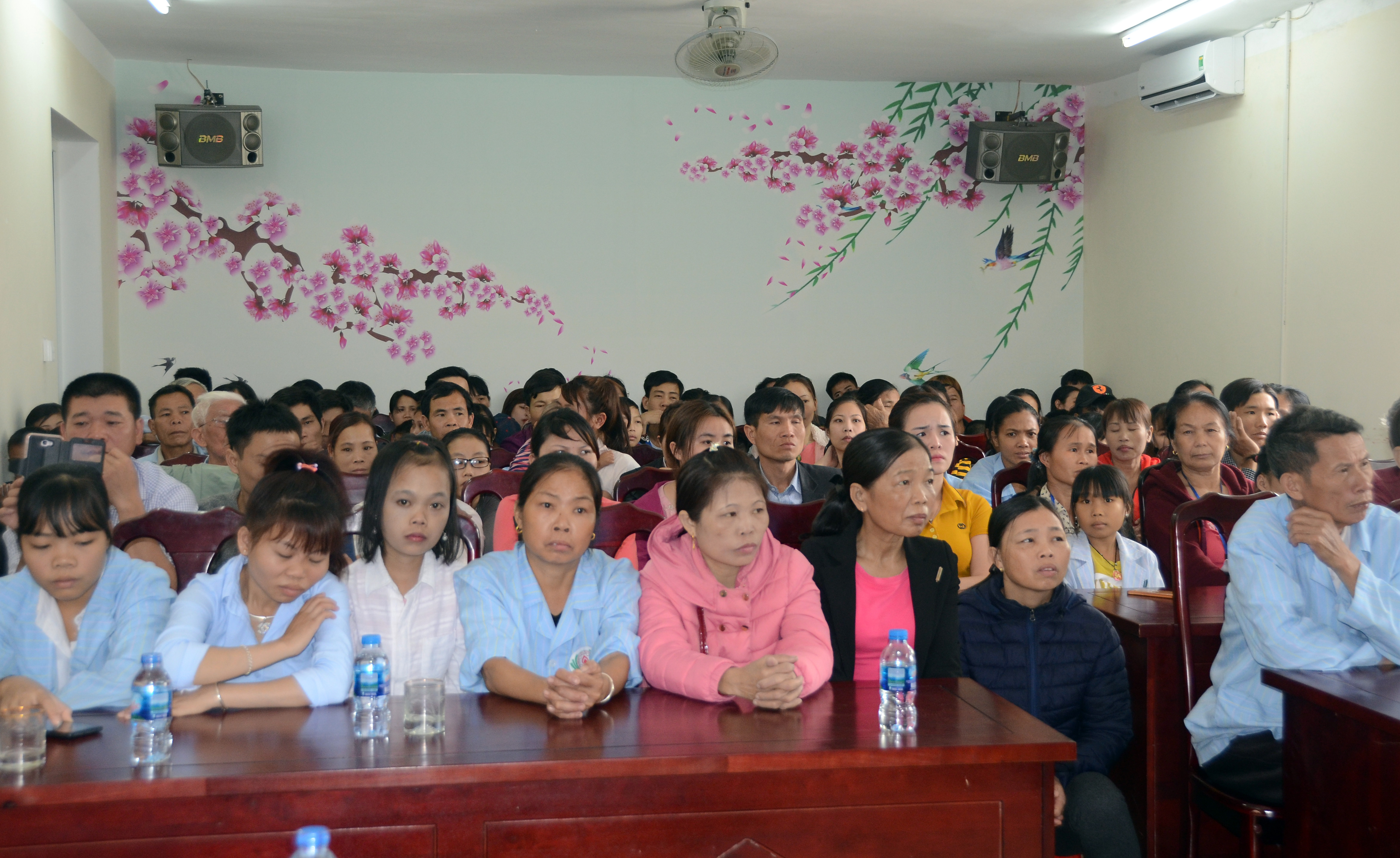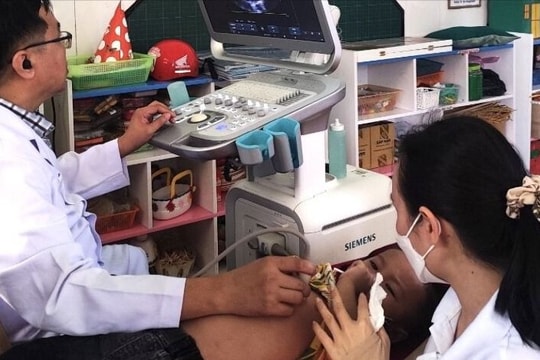Prenatal screening and diagnosis to prevent thalassemia
(Baonghean.vn) - That is the content conveyed by the staff of the Central Institute of Hematology and Blood Transfusion at the training session on blood transfusion safety and Thalassemia prevention for medical staff in Nghe An province on the afternoon of March 28.
Currently, Nghe An province needs over 100,000 units of blood and blood products each year, but currently only meets about 60% of the demand. In addition, the whole province has over 300 people with Thalassemia gene who regularly need blood transfusions and periodic iron removal.
From the reality of disease models and blood transfusion needs, the issue of ensuring blood transfusion safety and preventing Thalassemia needs to be raised.
 |
| Doctor CKII Nguyen Quang Vinh - Director of Nghe An Hematology and Blood Transfusion Center affirmed: Only prenatal screening and diagnosis can prevent Thalassemia. Photo: Thanh Chung |
The training session aims to improve professional knowledge in blood transfusion activities at hospitals and medical facilities; and prevent Thalassemia.
At the training session, the lecturers conveyed 3 contents: Indications for the appropriate use of blood and blood products in clinical practice; detection and treatment of some blood transfusion complications; diagnosis and treatment of Thalassemia...
Previously, on March 27, the Provincial Hematology and Blood Transfusion Center also organized a training session to raise awareness about Thalassemia for more than 100 patients - people carrying the disease gene to improve understanding of the disease and have preventive measures from the beginning.
 |
| Patients participating in training on Thalassemia prevention. Photo: Thanh Chung |
Thalassemia, also known as congenital hemolytic anemia, is a recessive genetic disease with the highest incidence rate in humanity (in which Vietnam has about 10% carrying the disease). The disease causes hemolysis, anemia and many other complications.
People with Thalassemia must be treated with blood transfusions and iron chelation therapy regularly, even for life, in the hospital. In fact, this disease has caused serious consequences to the development of the race, making it difficult for patients to be treated.








